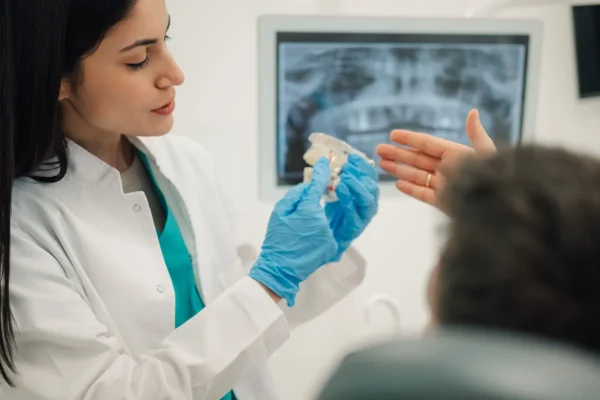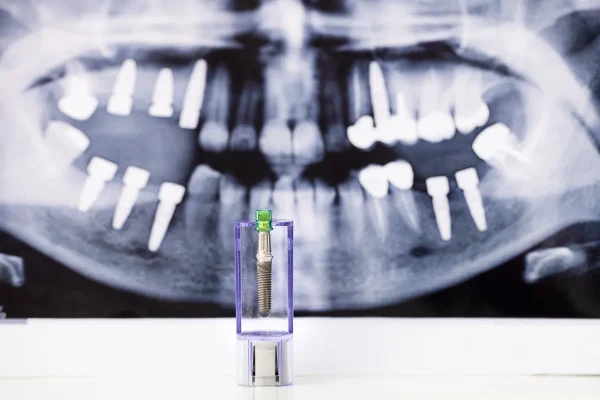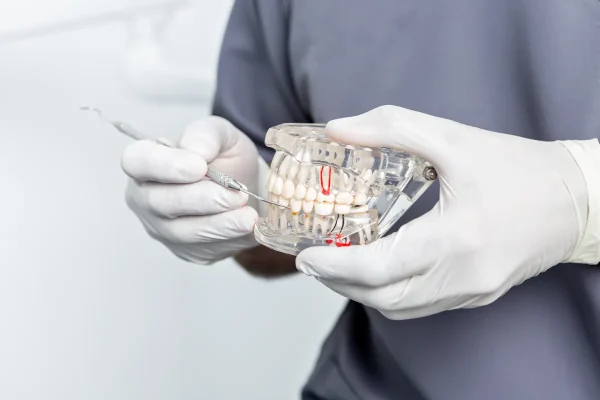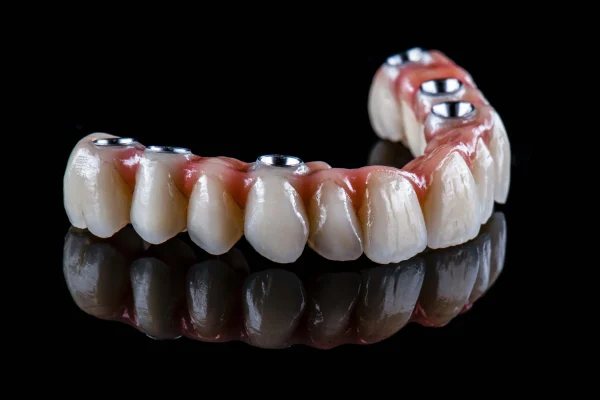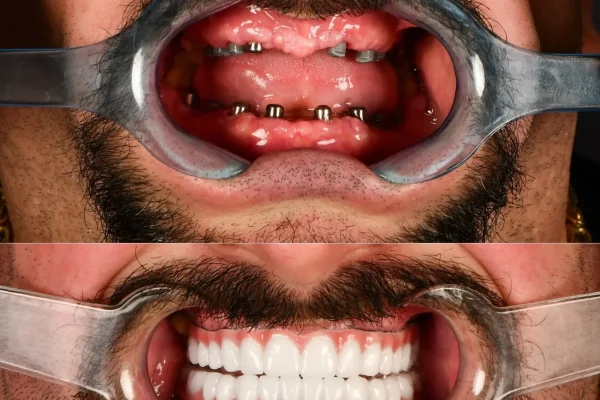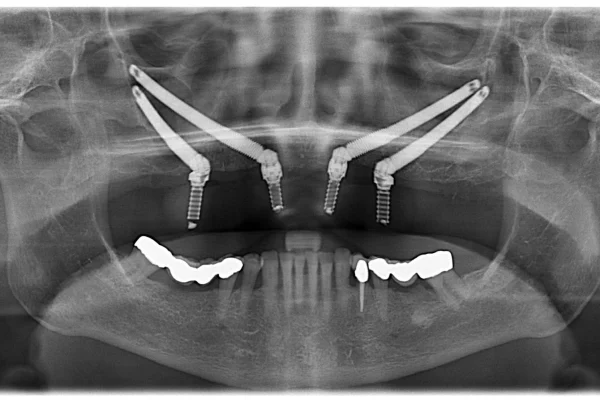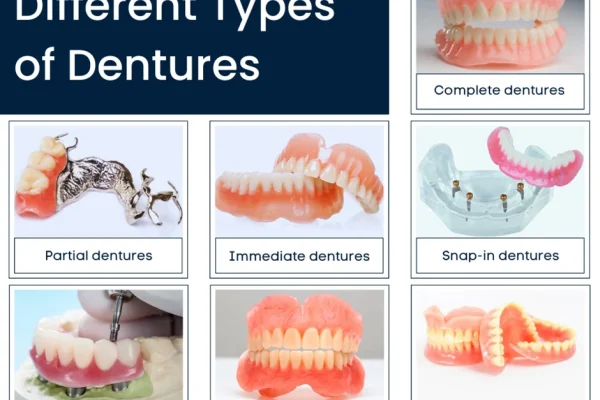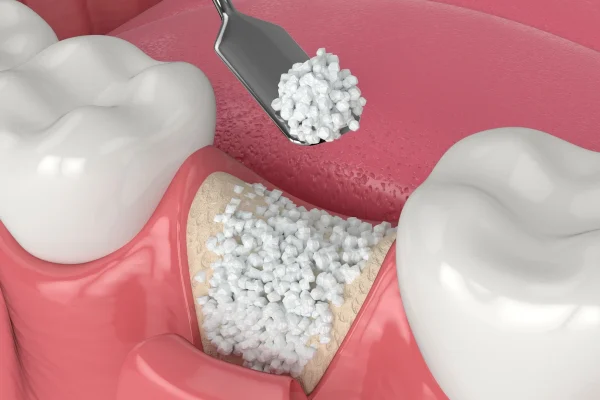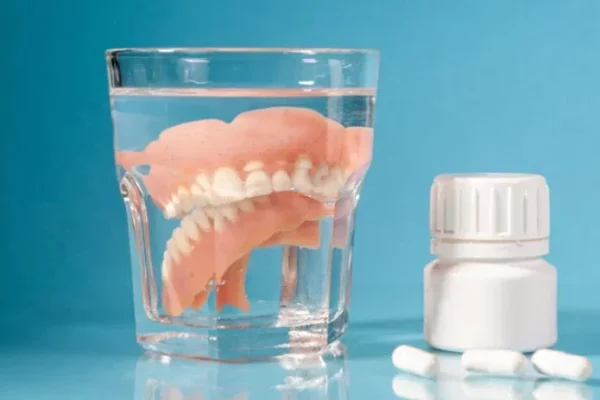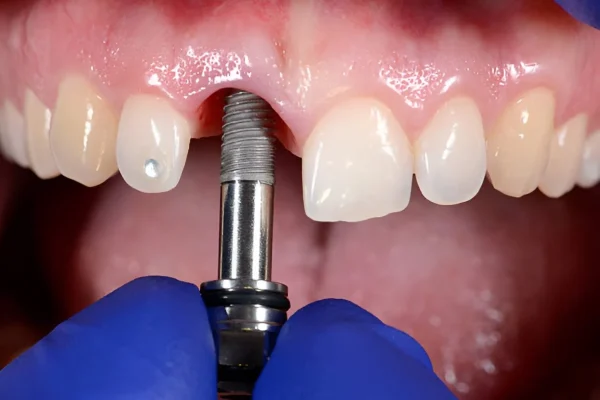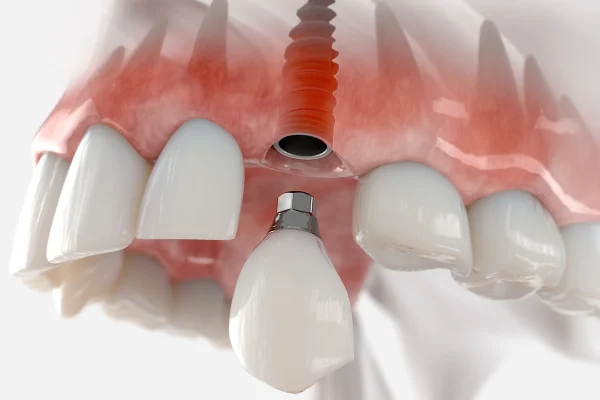Key Takeaways
- NHS dental implants are highly restricted, generally not for cosmetic reasons but for significant clinical medical needs.
- Eligibility typically involves cases like severe trauma, oral cancer recovery, or specific congenital conditions where alternatives are unsuitable.
- If eligible in England, the cost is the Band 3 NHS dental charge (e.g., £319.10 as of April 2024), substantially lower than private fees.
- Truly “free” NHS implants are rare, requiring both implant eligibility and exemption from all NHS dental charges.
- Specialized treatments like All-on-4 implants are even less likely to be NHS-funded than single implants.
- The main route for state assistance is NHS clinical qualification; specific “government grants” for implants are not generally available.
Table of Contents
ToggleAre Dental Implants NHS Treatments Genuinely Available for UK Residents?
Let’s cut to the chase: are “implants on nhs” a realistic prospect for the average Joe or Jane in the UK? The answer, unfortunately, isn’t a straightforward yes. The NHS’s general stance is that dental implants are not routinely available to everyone. Their provision is typically reserved for cases where there’s a significant clinical medical need, rather than for purely cosmetic reasons. Think less about achieving a Hollywood smile and more about restoring essential function where other, more conventional methods are unsuitable. So, when you ask, “Can you get dental implants on the NHS?” the response is nuanced. Yes, it’s possible, but the circumstances are exceptionally specific and limited. “NHS dental implants” are indeed a sophisticated form of “tooth replacement nhs,” but they are far less common than alternatives like dentures or bridges, which the NHS provides more readily.
The myriad of search terms people use – “nhs implants,” “nhs implant tooth,” “nhs tooth implant,” and “nhs implant teeth” – all point to a significant public interest and, frankly, a degree of confusion surrounding their availability. Queries like “dental implant nhs,” “nhs implants dental,” and “tooth implant nhs” flood search engines daily, reflecting a deep-seated desire for affordable, high-quality tooth replacement. The NHS primarily focuses on treatments that are clinically necessary to secure and maintain oral health. While losing a tooth can certainly impact oral health and quality of life, the NHS has to make difficult decisions about resource allocation. Dental implants are a relatively expensive and complex procedure, and their widespread provision would place an enormous strain on an already stretched NHS budget. Therefore, they are generally reserved for individuals who have lost teeth due to specific medical circumstances, such as oral cancer, severe trauma (like a serious accident), or certain congenital conditions (meaning you were born without certain teeth) where conventional dentures or bridges would be ineffective or clinically inappropriate. It’s crucial to understand this distinction from the outset to manage expectations realistically.
What Are the Specific Eligibility Criteria for Obtaining Dental Implants Through the NHS?
Navigating the labyrinth of “NHS-funded criteria” for dental implants can feel like deciphering an ancient script. It’s not as simple as wanting an implant and your dentist agreeing. The NHS has a set of strict guidelines, and these are not to be taken lightly. Eligibility often hinges on very specific medical conditions or circumstances. For instance, patients who have lost teeth due to significant trauma, such as a severe road traffic accident where facial and dental structures are extensively damaged, might be considered. Similarly, individuals undergoing treatment for oral cancer, where surgery to remove a tumour results in tooth and bone loss, could potentially qualify if implants are deemed essential for rehabilitation and function that cannot be achieved by other means. Another category includes patients with congenital conditions, meaning they were born with missing teeth (hypodontia) or other developmental issues where standard dentures or bridgework are clinically unsuitable or would not provide a stable, functional solution.
The core principle guiding “Dental Implants NHS Criteria” is demonstrable clinical necessity, where implants are not just a preferential option but perhaps the only viable way to restore essential oral function, prevent further significant health complications, or address severe disfigurement that profoundly impacts a patient’s quality of life beyond simple aesthetics. Sometimes, there might be “additional factors that enhance your eligibility for dental implants on the NHS,” such as the complete inability to wear dentures due to anatomical reasons or severe gag reflexes that make conventional prosthetics intolerable. However, these are usually considered in conjunction with the primary qualifying conditions. It’s important to note that each case is assessed individually, often by a specialist multidisciplinary team within a hospital setting, after a referral from a general NHS dentist. The bar is set high, reflecting the cost and complexity of the treatment and the NHS’s duty to prioritise resources. Simply having missing teeth, even if it causes some discomfort or cosmetic concern, is unlikely to meet the stringent criteria for NHS-funded implant treatment without these overriding medical or trauma-related factors.
Who Qualifies for Free Dental Implants in the UK via the NHS?
The million-dollar question, or perhaps the “free tooth” question: “Who qualifies for free dental implants UK?” Let’s be absolutely crystal clear – “free” dental implants on the NHS are exceptionally rare. The NHS operates on a system of patient charges for most dental treatments, unless an individual qualifies for specific exemptions. Even if a patient meets the stringent clinical criteria for NHS-funded implants, they would typically still be liable for the standard NHS patient charge applicable to complex dental treatment (currently Band 3 in England, with different arrangements in Scotland, Wales, and Northern Ireland). The notion of “free” usually only comes into play if the patient holds a complete exemption from all NHS dental charges. These exemptions are generally tied to age (e.g., under 18, or 18 and in full-time education), pregnancy or recent maternity, or receipt of certain low-income government benefits like Income Support, specific Jobseeker’s Allowance categories, Employment and Support Allowance, Pension Credit guarantee credit, or Universal Credit (meeting specific criteria).
Therefore, qualifying for NHS-funded implants (meaning the NHS agrees to provide them under their criteria) is one hurdle, and qualifying for them to be free of patient charges is another, separate hurdle based on your personal circumstances regarding charge exemptions. It’s a two-step process. The severe clinical needs that might lead to the NHS agreeing to provide implants are things like extensive facial trauma, post-oral cancer reconstruction, or severe congenital absence of teeth where no other prosthetic solution is viable. Even in these dire situations, if the patient doesn’t have an exemption from charges, they’d pay the set NHS fee. Specific funding pathways, perhaps related to compensation for criminal injuries or armed forces provisions, are outside the standard NHS dental charge system and represent very particular, non-routine scenarios. So, while the NHS aims to provide care based on need, the term “free” in the context of advanced treatments like dental implants requires careful qualification. The pathway to NHS implants is narrow, and the pathway to them being entirely without patient cost is narrower still, almost exclusively dependent on existing charge exemption rules rather than the dental condition itself.
How Much Does an Implant Cost on NHS, If You Are Eligible?
So, you’ve navigated the complex eligibility criteria and, hypothetically, you’ve been deemed a suitable candidate for an “NHS tooth implant.” The next pressing question is undoubtedly: “How much does an implant cost on NHS?” If dental implants are indeed provided through the NHS in England, they typically fall under the highest NHS dental charge band, which is Band 3. As of April 2024, the Band 3 charge in England is £319.10. It’s crucial to note that this fee can change (it usually increases annually), and the charging systems and amounts differ in Scotland, Wales, and Northern Ireland, so always check the most current rates for your specific UK nation. This Band 3 charge covers the entire course of complex treatment, which would include the implant placement and the final crown or bridge attached to it.
When discussing “dental implants cost uk nhs,” it’s vital to understand that this £319.10 (or equivalent in devolved nations) is significantly subsidised compared to private treatment costs. Privately, a single dental implant can cost anywhere from £2,000 to £3,500 or even more, depending on the complexity, materials used, and the clinic’s location. Therefore, the “implants nhs dental charges” represent a substantial saving if you meet the strict clinical criteria. Terms like “nhs dental implant price” and “dental implants nhs cost” all refer to this set patient contribution within the NHS framework. Remember, this “cost of dental implants on nhs” or “nhs implant cost” is applicable only to those exceedingly rare cases where the NHS has agreed to provide the treatment based on clinical necessity. It’s not a price list for elective treatment. The “nhs dental implant charges,” “nhs costs dental implants,” and “dental implants nhs price” are fixed for that band of treatment, regardless of how many appointments or how much work is involved behind the scenes for the dental team, illustrating the NHS’s commitment to providing necessary, albeit complex, care at a capped patient cost once eligibility is established.
What Is the Typical Process for Trying to Get an NHS Tooth Implant?
Embarking on the journey to potentially secure an “NHS tooth implant” is not a walk in the park; it’s a structured, multi-stage process that demands patience and a clear understanding of the pathway. The very first step invariably involves a consultation with your regular NHS general dental practitioner (GDP). During this appointment, you would discuss your concerns and your dentist will assess your oral health. If your GDP believes there’s a possibility – however slim – that you might meet the stringent NHS criteria for dental implants (perhaps due to significant trauma, medical conditions like post-oral cancer reconstruction, or severe congenital issues where other prosthetics are unsuitable), they will initiate the referral process. It’s important to understand that your GDP usually cannot provide NHS implants themselves; these are typically handled in a hospital or specialist service setting.
The referral itself is a detailed document outlining your dental history, the specific reasons why implants are being considered, and why alternative treatments like dentures or bridges are deemed clinically inappropriate for your case. This referral is then sent to a local NHS hospital’s restorative dentistry department or a similar specialist oral/maxillofacial unit. Following this, if the hospital consultants deem the referral to have merit based on the information provided, you’ll likely be invited for a detailed assessment. This is a critical stage in understanding “How to Get Dental Implants Through The NHS.” This hospital assessment is far more in-depth than a routine dental check-up. It will almost certainly involve specialist clinicians, comprehensive examinations, radiographs (X-rays), and potentially CT scans to evaluate your bone structure. A multidisciplinary team might discuss your case, considering all clinical factors. Only after this thorough evaluation will a decision be made on whether your specific circumstances meet the high threshold for NHS-funded implant treatment. If approved, you’d then be placed on a waiting list for the procedure, which can sometimes be lengthy.
How Can You Find Out About NHS Dental Implant Services in Specific Areas like Glasgow or London?
Trying to pinpoint “NHS dental implant services” in specific geographical locations, like querying “Can You Get Dental Implants on NHS in Glasgow?” or seeking options in London, requires a slightly different approach, though the underlying NHS principles remain consistent. The availability and exact processes for accessing highly specialized treatments like dental implants can indeed involve your local NHS health board (in Scotland, like NHS Greater Glasgow and Clyde) or NHS trusts (in England, covering areas like London). While the core national criteria for NHS-funded implants are broadly similar across the UK, the pathway to assessment might have local nuances. For instance, specific hospitals within Glasgow or London will be designated to handle complex restorative dentistry, including implant cases that meet the national criteria.
If you’re searching for “Dental Implants Fulham | NHS Dentist” or services in West London (such as those alluded to by “Maida Smiles,” though typically private clinics highlight their proximity to NHS discussions), it’s vital to remember that even if a local NHS hospital offers implantology, access is still governed by the strict NHS eligibility criteria and a formal referral from a general NHS dentist. You cannot usually self-refer to these hospital departments for NHS implants. General advice on how one might “Get Best Dental Implants on NHS in Glasgow – Eligibility” (or any other city) would involve first speaking to your registered NHS general dentist. They are your primary gatekeeper and will know the local referral pathways to the relevant hospital departments if they believe your case might qualify. Online resources from your local NHS board or trust website may also provide general information on restorative dentistry services, but individual eligibility can only be determined through the formal assessment process. Guides titled “Your Complete Guide to Getting Dental Implants on the NHS in Glasgow” or “How to Get dental implants on NHS in Glasgow at Dental Scotland” (which might be produced by private clinics or informational sites) can illustrate the localized public interest and perhaps outline general referral steps, but the critical decision always rests on the unyielding core NHS criteria, which are applied nationally, regardless of your postcode.
Why Aren’t Implants Widely Available on the NHS?
The question of why dental implants aren’t a readily available, bog-standard treatment on the NHS is one that puzzles many, especially given their effectiveness. The primary reasons boil down to a confluence of significant cost, the sheer scale of demand versus limited resources, and the NHS’s fundamental philosophy of resource prioritisation. Dental implants are a high-cost treatment, involving expensive materials (like medical-grade titanium), specialised surgical expertise, and often complex laboratory work for the final crowns or bridges. If the NHS were to offer implants to everyone who might benefit from them cosmetically or even for minor functional improvements, the financial burden on the public purse would be astronomical, diverting funds from other essential and life-saving medical and dental treatments. The NHS operates within a finite budget, and difficult decisions must be made constantly about how to allocate these resources to achieve the greatest health benefit for the largest number of people.
Furthermore, the NHS’s core focus in dentistry, as in other areas, is on maintaining baseline health and restoring essential function rather than primarily on cosmetic enhancements. While the loss of a tooth can have functional and psychological impacts, implants often cross into what might be considered aesthetic improvement for many common cases of tooth loss (e.g., a single missing back tooth). The NHS prioritises treatments that prevent pain, treat disease (like decay and gum disease), and provide functional replacements like dentures and bridges, which, while perhaps not as sophisticated as implants, serve the basic needs of a vast majority of the population at a much lower cost. There are also “more reasons why you may be declined for dental implants on the NHS,” even if a clinical need is argued. These can include factors related to the patient’s own oral health, such as active gum disease, insufficient bone volume (which might require additional, even more complex grafting procedures), or lifestyle choices like smoking, which significantly compromises healing and implant success rates. Certain systemic medical conditions can also be contraindications. Essentially, the NHS reserves implant treatment for a very select group where the clinical need is exceptionally high and other solutions are genuinely inadequate, ensuring that this advanced, resource-intensive treatment is used most judiciously.
What Alternatives to NHS Implants Should You Consider?
If the narrow gateway to NHS-funded dental implants seems firmly closed for your particular situation, it’s essential not to lose hope, as several other tooth replacement options exist, both within the NHS and through private routes. The NHS itself routinely provides more conventional, yet still effective, alternatives. Dentures are a common solution, especially for multiple missing teeth. These removable appliances can be full (replacing all teeth in an arch) or partial (replacing a few missing teeth). Modern dentures are far more sophisticated than their predecessors, offering reasonable aesthetics and function. Their main pros are lower cost and non-invasive fitting. The cons can include initial discomfort, potential for movement while eating or speaking, and the need for regular adjustments and diligent cleaning. Bridges are another NHS option, typically used to replace one or two missing teeth. A bridge involves placing crowns on the teeth adjacent to the gap, with a false tooth (or teeth) fused between them, literally “bridging” the space. Bridges are fixed, meaning they aren’t removable, which many patients prefer. Pros include good stability and aesthetics. Cons are that they require preparation (grinding down) of often healthy adjacent teeth, and their longevity can depend on the health of these supporting teeth.
For those who don’t meet the strict NHS criteria for implants, or who prefer not to wait or desire more control over their treatment choices, private dental implant treatment is a widely available and highly successful alternative. While significantly more expensive, going private offers benefits such as quicker access to treatment, often a wider choice of implant systems and materials, and the possibility of more advanced cosmetic procedures alongside the implant work. Many private practices offer payment plans to help spread the cost. Beyond these, depending on the specific clinical scenario, other potential solutions might include orthodontic treatment to close a gap (in select cases) or, for some individuals, simply accepting a small, inconspicuous gap if it doesn’t cause functional problems or significant aesthetic concern. Your dentist, whether NHS or private, is best placed to discuss the most appropriate alternatives based on your individual dental health, needs, and financial considerations, weighing the pros and cons of each to help you make an informed decision.
Can You Specifically Get All-on-4 Dental Implants From the NHS?
The “All-on-4” dental implant technique, a revolutionary approach that typically uses four strategically placed implants to support a full arch of fixed teeth, is often a topic of interest for those facing complete tooth loss. So, the pertinent question arises: “Can I get All-on-4 dental implants from NHS?” The straightforward answer is that the “Availability of All-on-4 Implants on NHS” is extremely limited, even more so than single dental implants. All-on-4 is a highly complex and resource-intensive procedure. It demands meticulous planning, advanced surgical skills, specialized components, and significant laboratory involvement to fabricate the full-arch prosthesis. Given its intricacy and associated costs, it is generally considered well outside the scope of routine NHS dental provision.
For the NHS to consider funding an All-on-4 procedure, the patient’s circumstances would need to meet the most stringent clinical need criteria. We are talking about exceptionally rare situations, perhaps involving individuals who have undergone extensive maxillofacial surgery for cancer, resulting in the loss of an entire jaw’s worth of teeth and significant bone, where no other conventional prosthetic (like a full denture) could possibly provide any functional rehabilitation due to the altered anatomy. Or, perhaps, severe trauma leading to similar devastating consequences. In such extreme cases, where an All-on-4 or similar full-arch implant-supported reconstruction is deemed the only clinically viable path to restoring basic functions like speaking and eating, it might be considered by a specialist NHS hospital team. However, these scenarios are far removed from the more common reasons people seek All-on-4 privately, such as dissatisfaction with existing dentures or widespread tooth loss due to general decay or gum disease. Therefore, while one can never say never in healthcare, the answer to “Can I get All-on-4 dental implants on the NHS?” is, for the vast majority of people, a resounding no. It remains predominantly a private treatment option due to its high cost and complexity, falling into a category of care the NHS can seldom justify funding from its public budget.
Is There a Government Grant for Implants Available in the UK?
A common query from those facing the high cost of dental implants is, “Is there a government grant for implants?” or more specifically, “Can I get a government grant for dental implants in the UK?” The short answer is that, for the general public seeking dental implants, specific “government grants” exclusively for this purpose are not typically available. The UK government doesn’t operate a system of direct cash grants to individuals for routine or even specialized dental procedures like implants in the way it might for, say, home insulation or disability adaptations through different schemes. Any state funding for dental implants comes through the established NHS pathways and is subject to the stringent clinical eligibility criteria previously discussed. If you qualify for NHS-funded implants, you pay the relevant NHS patient charge (e.g., Band 3 in England), unless you have a separate exemption from all NHS charges. This isn’t a “grant”; it’s a heavily subsidised treatment within the NHS framework.
There are no dedicated “dental implant grant” schemes administered by central government departments for the average person. Sometimes, confusion arises with other types of support. For example, individuals who have suffered dental injuries as a result of a violent crime might be eligible for compensation through the Criminal Injuries Compensation Authority (CICA), which could potentially cover the cost of restorative dental work, including implants. Similarly, veterans might have access to specific provisions through Veterans UK if their dental problems are attributable to their service. Some charitable organisations or benevolent funds might, in very specific and limited circumstances, offer financial assistance for medical or dental needs to particular groups of people they support (e.g., those in certain professions or with specific illnesses). However, these are not “government grants” in the commonly understood sense for widespread public access to dental implants. The primary route for any state assistance with the cost of implants remains via qualifying for treatment under the NHS, which is based on clinical need, not a grant application process. Therefore, pinning hopes on a standalone government grant for implants is, unfortunately, unlikely to be a fruitful avenue for most people.
Which NHS Trusts or Hospitals Might Discuss or Offer Dental Implant Services?
If you’re trying to identify where NHS-funded dental implant services might be accessed, it’s generally the larger teaching hospitals or major NHS trusts that have specialized restorative dentistry or oral and maxillofacial surgery departments. These are the centres typically equipped with the necessary expertise, advanced technology, and multidisciplinary teams to handle the complex cases that might qualify for NHS-funded implants. Examples often cited, or appearing in searches, include prominent institutions such as “Dental implants service – Overview | Guy’s and St Thomas’ NHS Foundation Trust” in London, “Dental Implants – Leeds Teaching Hospitals NHS Trust,” the “Implant – University Dental Hospital of Manchester,” services related to “Dental implants in restorative dentistry | CUH” (Cambridge University Hospitals), and information on “NHS funded implants – Newcastle Hospitals NHS Foundation Trust.” These examples are indicative of the types of tertiary care centres where such specialized treatment would be considered and potentially carried out.
However, it’s absolutely crucial to understand that simply because a hospital lists dental implantology as a service doesn’t mean patients can directly approach them or that everyone referred will be accepted for NHS treatment. Access is almost invariably via a formal referral from a general NHS dentist or another medical specialist. Patients cannot usually self-refer to these hospital departments for NHS-funded implants. The referral must detail why the patient’s case is exceptional and why conventional treatments are unsuitable, aligning with the strict national NHS criteria. Even then, the hospital consultants will conduct their own thorough assessments to determine eligibility. The presence of an implant service at a particular NHS hospital signifies their capability to perform the procedure if a patient meets the very high bar for NHS funding, not open access. The decision-making process remains rigorous, focusing on profound clinical need arising from trauma, congenital conditions, or as a result of treatments for conditions like cancer, where implants are integral to rehabilitation and other options are not viable.
What General Information Should You Know About Overall NHS Dental Treatments?
To fully appreciate the context of NHS dental implants, it’s helpful to understand the broader landscape of “Dental treatments – NHS.” The National Health Service aims to provide clinically necessary dental care to help individuals achieve and maintain good oral health. In England, NHS dental charges are structured into three main bands (Band 1, Band 2, and Band 3), with a set fee for each band covering all necessary treatment within that category. For example, Band 1 (£26.80 as of April 2024) covers examinations, diagnosis, advice, X-rays, and a scale and polish if clinically needed. Band 2 (£73.50 as of April 2024) covers all Band 1 treatments plus further procedures like fillings, root canal work, and tooth extractions. Band 3 (£319.10 as of April 2024) covers all treatments in Bands 1 and 2, plus more complex procedures such as crowns, dentures, and bridges. (Note: Scotland, Wales, and Northern Ireland have their own distinct NHS dental charging systems and provisions, so it’s important to check the specifics for your nation).
The key takeaway is that the NHS provides clinically necessary dental care, and treatments are offered to protect and restore oral health. Dental implants, being a highly specialized, complex, and relatively expensive procedure, sit at the very apex of this provision, reserved for a small minority of cases meeting stringent criteria, usually falling under the Band 3 charge if approved in England. The primary focus of NHS dentistry for the vast majority of the population remains routine check-ups, preventative advice, and standard restorative treatments like fillings, dentures, and bridges. Understanding this hierarchy and the NHS’s remit to provide essential care to the whole population helps explain why advanced treatments like implants are not routinely available on demand. Maintaining regular attendance with an NHS dentist for check-ups and addressing problems early is the cornerstone of the NHS dental system for most people.
Frequently Asked Questions About ‘dental implants nhs’
Navigating the world of NHS dental implants can throw up a lot of questions. While we’ve gone into depth above, here are some quick-fire answers to the most common queries, designed to give you a summary of the key takeaways. Remember, individual circumstances always vary, and specific advice should come from your dental professional.
Are Dental Implants NHS Treatments Genuinely Available for UK Residents?
Yes, but it’s highly restricted. NHS dental implants are not routinely offered. They are generally reserved for individuals with a significant clinical medical need, such as those who have lost teeth due to severe trauma (like an accident), oral cancer treatment, or specific congenital conditions where other forms of tooth replacement are clinically unsuitable. Cosmetic reasons are not grounds for NHS implants.
What Are the Specific Eligibility Criteria for Obtaining Dental Implants Through the NHS?
The criteria are very strict. Eligibility usually depends on demonstrating a profound clinical necessity. This often includes tooth loss directly resulting from major trauma, surgery for head and neck cancer, or severe developmental absence of teeth (hypodontia) where conventional dentures or bridges are not a viable solution. Each case is assessed individually by specialist NHS teams.
How Much Does an Implant Cost on NHS, If You Are Eligible?
If you meet the stringent eligibility criteria and are approved for NHS dental implants in England, the treatment typically falls under the Band 3 NHS dental charge. As of April 2024, this is £319.10. This single charge covers the entire course of treatment. Charges and systems vary in Scotland, Wales, and Northern Ireland, so it’s essential to check local rates. This is significantly less than private costs but is only applicable if the NHS agrees to provide the treatment.
Who Qualifies for Free Dental Implants in the UK via the NHS?
Truly “free” NHS dental implants are exceptionally rare. Even if you qualify for NHS-funded implants, you’d usually pay the standard Band 3 charge. “Free” treatment only applies if you also meet criteria for full exemption from all NHS dental charges (e.g., due to certain low-income benefits, age, or maternity exemptions). The criteria for the implants themselves remain the strict clinical ones.
Why Aren’t Implants Widely Available on the NHS?
The limited availability is primarily due to their high cost, the need to prioritise NHS resources for a wide range of essential dental and medical treatments, and the NHS’s focus on functional restoration over purely cosmetic improvements for the general population. Implants are resource-intensive, and their widespread provision would be financially unsustainable for the NHS. Strict criteria ensure they are used only where the clinical need is greatest and other options are inadequate.
Ultimately, while the NHS can, in very specific and limited circumstances, provide dental implants, it’s far from a standard offering. For most people seeking this advanced form of tooth replacement, exploring private options will be the more realistic path. However, always start with a conversation with your NHS dentist; they can provide initial advice and guide you on whether your case has any potential, however remote, for consideration under NHS criteria, or discuss the alternatives available to you.





